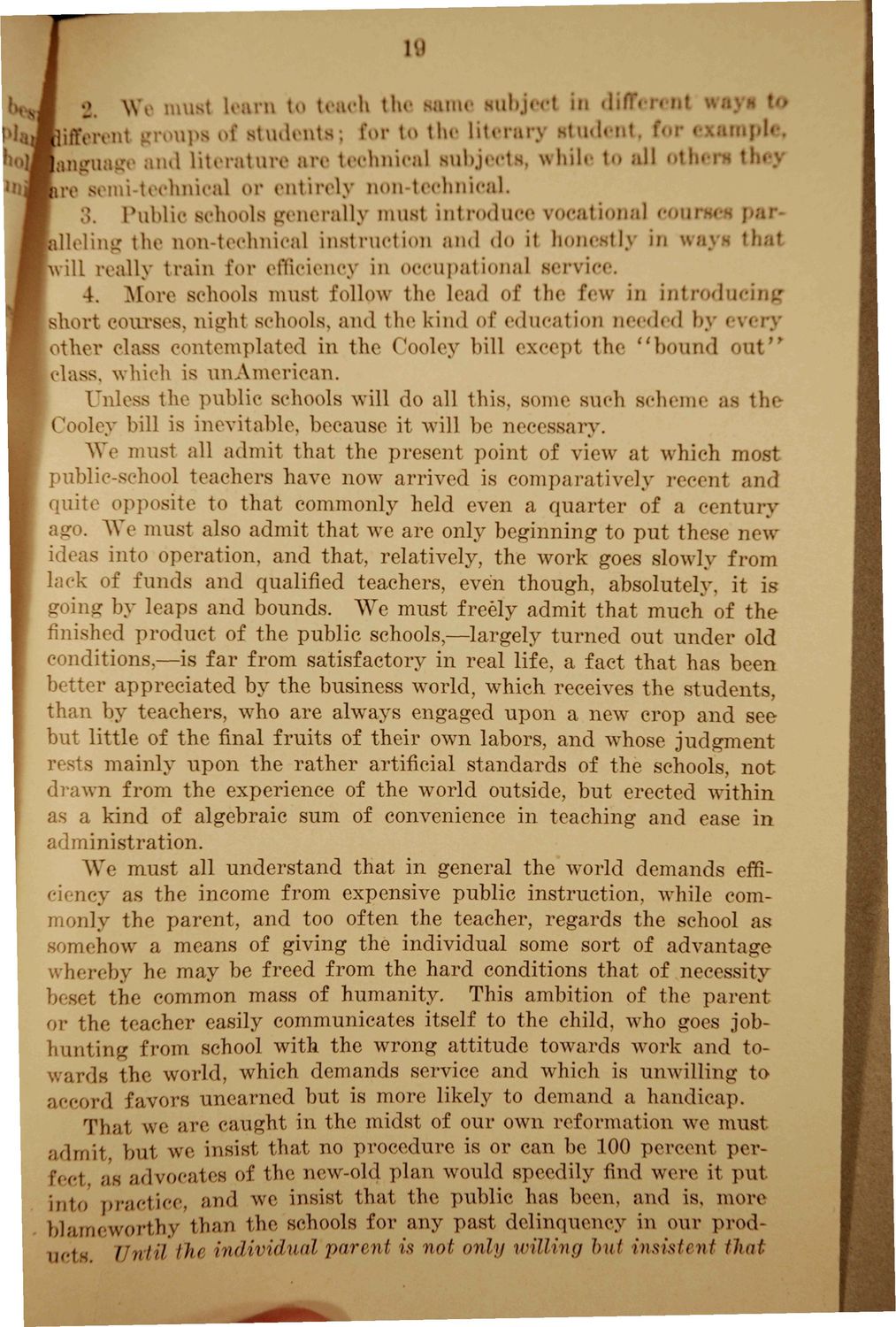| |
| |
Caption: Booklet - What is Involved in a Vocational Education (Davenport) (1915)
This is a reduced-resolution page image for fast online browsing.

EXTRACTED TEXT FROM PAGE:
1 2, \\ must I ini l teach the .same Ntlbjl t in dif f \\H\H afferent >ups of students; for to the lite ran rtudent, i n impb inguai tnd literature are technical subjecti whil< to all othf»n t! re semi-techni il or entirely non-technical. :!. Publi schools generally must introduce \ rational « u/ — par lleling the non-technical instruction and do it hon( tlj in wa; mill really train (or efficiency in occupational servin thai I 4. More schools must follow the lead of the f( • in introducii short COUTSeSj night schools, and the kind of education ne d by . er Other class contemplated in the Cooley bill except the " b o u n d o u t " class, which is unAmerican. Unless the public schools will do all this, some such Scheme as tin Cooley bill is inevitable, because it Mill be necessary. We must all admit that the present point of view at which most public-school teachers have now arrived is comparatively recent and quite opposite to that commonly held even a quarter of a century ago. We must also admit that we are only beginning to put tie se newideas into operation, and that, relatively, the work goes slowly from lack of funds and qualified teachers, even though, absolutely, it is going by leaps and bounds. We must freely admit that much of the finished product of the public schools,—largely turned out under old conditions,—is far from satisfactory in real life, a fact that has been better appreciated by the business world, which receives the students, than by teachers, who are ahvays engaged upon a new crop and see but little of the final fruits of their own labors, and whose judgment rests mainly upon the rather artificial standards of the schools, not drawn from the experience of the world outside, but erected within as a kind of algebraic sum of convenience in teaching and ease in administration. We must all understand that in general the world demands efficiency as the income from expensive public instruction, while commonly the parent, and too often the teacher, regards the school as somehow a means of giving the individual some sort of advantage whereby he may be freed from the hard conditions that of necessity Inset the common mass of humanity. This ambition of the parent or the teacher easily communicates itself to the child, who goes jobhunting from school with the wrong attitude towards work and towards the world, which demands service and which is unwilling to ccord favors unearned but is more likely to demand a handicap. That we are caught in the midst of our own reformation we must admit but we insist that no procedure is or can be 100 percent perfect is advocates of the new-old plan would speedily find were it put into practice, and we insist that the public has been, and is, more blameworthy than the schools for any past delinquency in our prodacts Until the individual parent is vol only willing but insistent t that •
| |